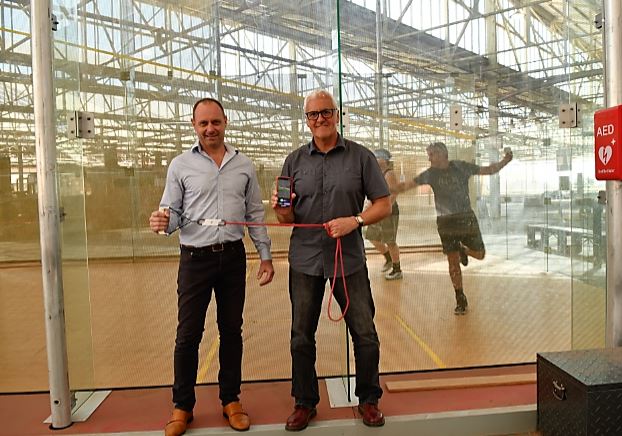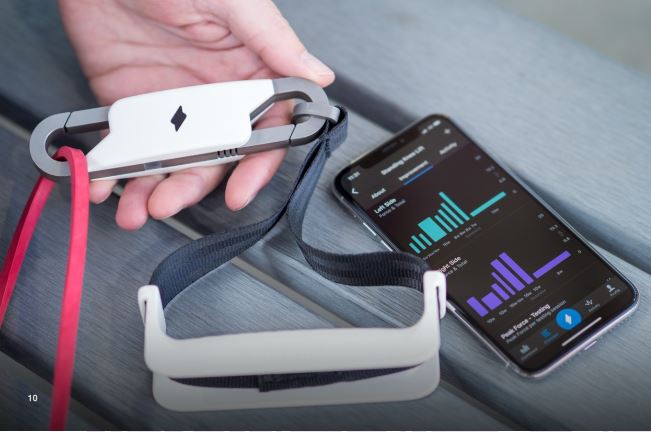
Aching muscles and sporting injuries have access to quicker recovery with the help of a new high-tech rehabilitation device supported by Flinders University intelligence.
The Prohab Connected Healthcare System, which is expanding this year with a next-generation version, was designed and developed in collaboration with Flinders University teams at Tonsley.
The Prohab device last year won the major Premier’s Award in the South Australian-NT Design Institute of Australia annual presentations and is now in contention for the international Good Design Awards.
Flinders University Associate Professor in Product Design Sandy Walker, from the College of Science and Engineering team at Tonsley, says his engagement in the new SA-made product commenced almost two years ago.
He has been instrumental in developing the overall user-centred design concept for the data capture device (integrating hardware, electronics and software), including the “design for manufacture” integration of all major functional elements into a single precision machined titanium sensor.
“The IP has been patented, and I am now helping Prohab with the design and development of a range of accessories which will extend the therapeutic benefits of this unique rehabilitation system,” Associate Professor Walker says.
The device allows physios and other rehabilitation experts to monitor a sportsperson’s or patient’s muscle exertion in real time.
The device connects to existing equipment of resistance bands, widely used in gyms and exercise sessions, to precisely measure the force applied to the band. The device then sends the exercise data to a smartphone so the athlete or patient visually knows exactly what to do. The data is tracked over time to gradually progress patients effectively and safely.

The device aims to motivate patients recovering from injury, or surgery, by keeping track of real time progress. In addition, the device will help medical professionals make better and more tailored treatment recommendations to patients.
The second-generation prototype, featuring highly intelligent sensors, promises to even more accurately capture intelligence gathered during the exercise or recovery session.
With State Government assistance, the device’s original proof of concept was delivered by experts at the Medical Device Research Institute at Flinders University.
Prohab chief executive, physio and sport therapist Lyndon Huf is excited about the ongoing development of the device – including the major design award in 2018.
“I think we’ve come up with an exciting opportunity for both elite sportspeople, and other sporting enthusiasts, to stay at the top of their game with more informed recovery options,” Mr Huf says.
“It’s not only about sporting performance but also about better quality of life for people who might have sport and other related injuries,” he says.
The Tonsley-based company’s new device range will be on sale later this year.
Experts from around Australia will present at a Good Design Australia SA Forum at Tonsley on Wednesday 13 February 2019.

